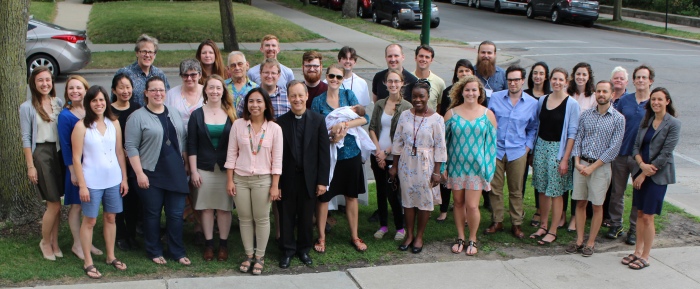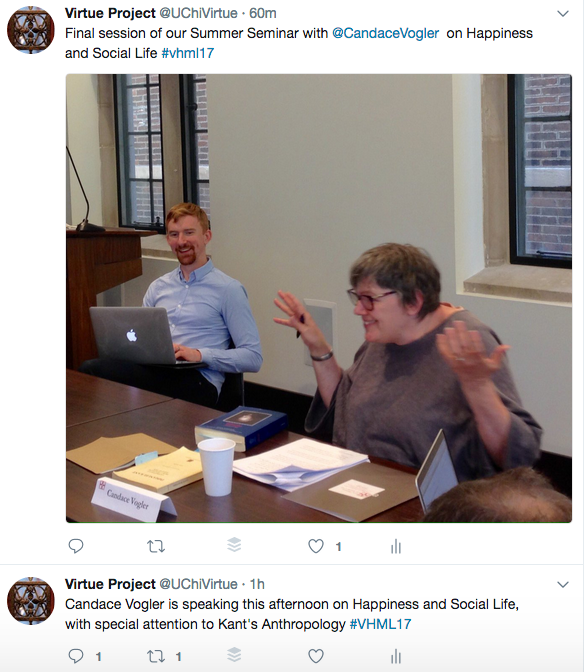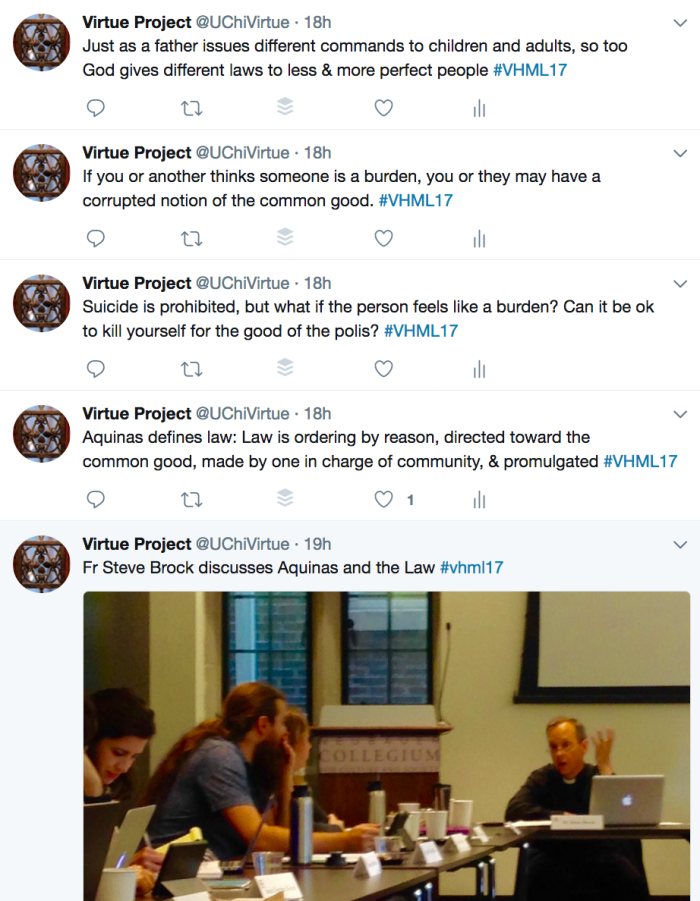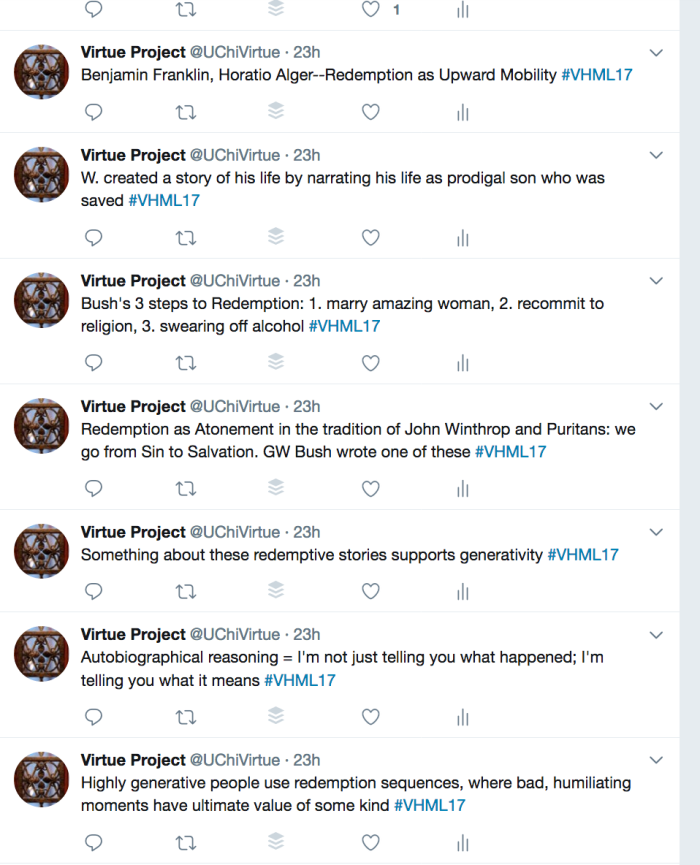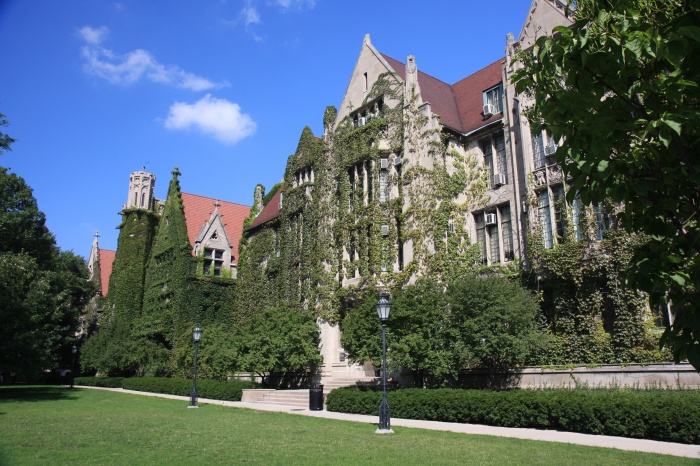
On April 21-22, our co-PI, Jennifer A. Frey, hosted a philosophy workshop at the University of South Carolina titled, “Practical Truth: Reflections on the Aristotelian Tradition.” Frey hosted an international group of philosophers on campus in Columbia, SC to discuss the importance of the concept of practical truth, both historically within the Aristotelian tradition and in terms of its relevance for contemporary philosophical debates about action, practical reason and virtue. She is currently pursuing the possibility of publishing the essays in an edited volume.
In her opening discussion of practical truth, Professor Frey discussed her reasons for thinking the concept of practical truth is central to a philosophical account of virtue. What follows is a condensed version of her basic argument.
This slideshow requires JavaScript.
Let us start with the claim that the knowledge the virtuous person possesses is a distinctive kind of knowledge, what the ancients and medievals called practical knowledge or practical wisdom. What marks the difference between practical and theoretical knowledge and wisdom? Well, traditionally the thought was that it is grounded in the distinction between theoretical and practical reasoning, which Aristotle differentiated in terms of distinctive ends or aims (their distinctive work or operation as modes of reasoning). Theoretical reasoning, Aristotle argued, aims at an understanding of being or what is, and its measure is truth; such reasoning is finished (i.e., its work is done) when truth is grasped intellectually. Theoretical wisdom, the perfection of theoretical reasoning, aims to know general and timeless truths about the highest or best objects of contemplation. But practical knowledge, by contrast, aims at praxis, at realizing or making actual a good human life through deliberative choices of certain actions and activities; it aims to realize what is truly good in particulars, in human actions. If we say that its measure is also truth, it must be truth of a special kind, one that somehow hooks up with realizing what is truly good. It cannot be a truth that ends with an intellectual grasp of what is; rather, it would have to be a truth that is achieved in the living of a certain life, in a praxis.
It is worth noting, in this regard, that Aristotle thought one could possess theoretical but not practical wisdom—theoretical but not practical truth. Suppose, for instance, that someone excels in math, physics, chemistry, biology, and general cosmology. Such a person grasps the way things are ordered at the most basic and fundamental level, and he can apply these most general principles to explain much of what happens in the world. Suppose he has devoted his life to this kind of knowledge. Of course, this in no way guarantees or even tends to the cultivation of his moral virtue. Perhaps he is lascivious with women outside of the lab; perhaps he is willing to lie, steal, and cheat when it allows him more time and grant money to pursue his passion for science, perhaps he is a coward and incapable of helping others in need; and so on. None of this necessarily impacts his ability to do great science; and, more importantly, nothing about doing great science inoculates him against developing a gross moral character.
It wouldn’t change anything, I suspect, if we added theology to the list of studies to which our imagined knower dedicated himself. Being able to argue about the metaphysics of the Trinity does not necessarily make you a loving or good person either. A mere change of topic won’t cut it. For the same reason, one might even be a great moral theorist and have a bad moral character; that is, one might have theoretical knowledge about practical subject matters but not the practical dispositions that lead to making good decisions and living well.
This goes back, once again, to the different inherent teleologies or inherent aims of the two different kinds of reasoning. Practical reasoning is not practical in virtue of having a special kind of content; it is not ordinary theoretical thought and inference suddenly turned to the topic of human good. Practical reasoning is practical because it aims to realize some good or end that the agent desires—most especially the desire to live well or to flourish. Such reasoning depends on the agent wanting to realize some end or objective or good; thus desire for some good is essential to practical reasoning, it is the arche or starting point of such reasoning. This explains why Aristotle defines practical truth as “truth in accordance with right desire.”
Now, if practical knowledge and reasoning essentially aims at action, and if such thought depends for its teleology upon a certain appetitive orientation, then it can only be successful when the agent brings about the goods in question through the use of this very thought and reasoning. So it is somewhat misleading to say that the practically wise man knows how to live, because again, he may know this as a theory rather than as a praxis. To come to know the praxis would require a different kind of training that the one the moral theorist typically receives. What we might strictly speaking say of the practically wise man, if he is really practically wise, is that he knows he is living well, not simply that he knows how to live well, generally speaking. For the knowledge is operative in the practically wise and is the explanation of what he does—of his choices and actions. The manifestation of the knowledge is primarily in what he does rather than what he says.
Thus it seems to me that there is a difference between a theoretical conception of living well, which the moral theorist might possess, and a practical conception of living well, which only the practically wise possess. It also strikes me that the good or happy life is one that displays a kind of truth about human nature and human beings—a truth about what our good is. But again, this is a distinctively practical kind of truth that is displayed in living well, not simply in the possession of correct general propositions or principles. One sees practical wisdom and practical truth principally or paradigmatically in action, as it were, not standing behind it.
In contemporary virtue ethics, there is almost no discussion of practical truth. But if the line of reasoning I have outlined is roughly correct, virtue ethics needs an account of a distinctively practical notion of truth just as much as it needs a distinctively practical account of knowledge and wisdom. The point of the workshop (and eventually, the collected volume of papers) is to begin to advance such an account in light of our understanding of the Aristotelian tradition, broadly construed to include Aquinas and the work of Elizabeth Anscombe.
